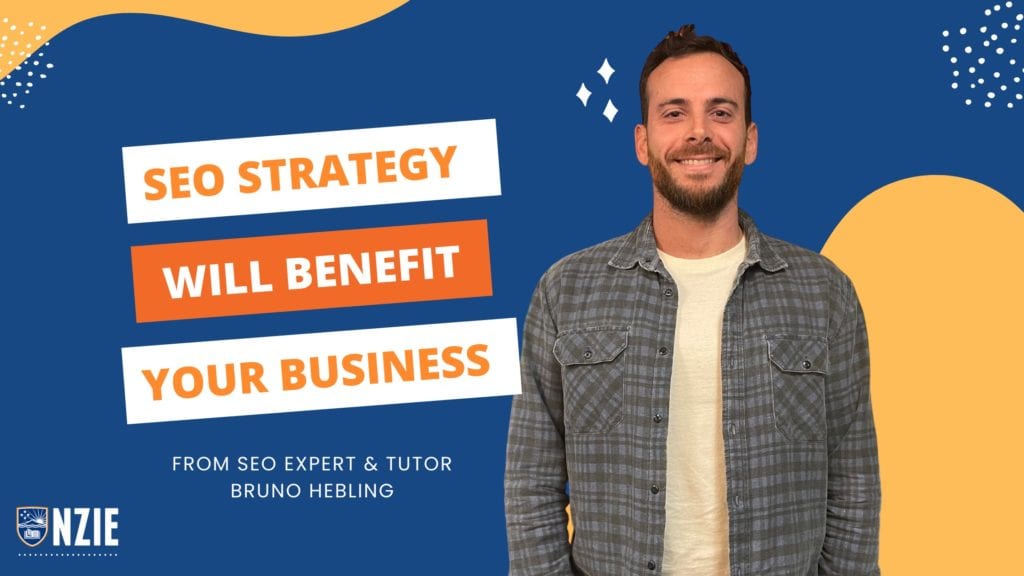As businesses look for ways to save money while increasing their revenue, SEO strategy (search engine optimisation) has emerged as a valuable investment with relatively low costs.
According to BrightEdge, in 2023, 68% of online experiences begin with a search engine. In addition, 60% of marketers say that inbound (SEO, blog content, etc.) is their highest quality source of leads, with SEO leads holding a 14.6% closure rate. (via HubSpot).
SEO is essential for businesses looking to improve their online presence, increase visibility, and drive traffic and revenue.
In this blog post, we’ll explore the insights of Bruno Hebling, an SEO specialist and tutor, on how SEO can benefit businesses. We’ll also discuss the skills needed to become a successful specialist, AI developments and how long it takes for a strategy to drive results.
Why SEO is a Good Investment for Businesses
SEO is a long-term investment that requires planning and a good strategy. Businesses must spend money on SEO strategies before they can save money. According to Hebling, SEO is a valuable investment because it can bring website traffic, generate new customers, and drive sales.
Hebling suggests that businesses should initially invest in both Google ads and SEO strategies. Over time, as the balance is achieved and SEO begins to work, companies can spend less money on ads and achieve more results through SEO.
“[Businesses] will save money in the long term. SEO is free traffic. So, if implemented well, a lot of traffic will come through the door freely, without any ads involved.”
How SEO Drives Sales to a Company
SEO can drive sales to a company by targeting different queries and areas of the sales funnel. Hebling suggests that businesses should invest in informational keywords first, which generate traction around a specific topic and generate more customers when they are ready to buy a related product.
He explains, “Firstly, companies should invest in informational keywords. That means customers land on your page when they try to find some information. Then later, when that customer is ready to buy the product, they might think of you as the leading source of information and purchase from you.”
Businesses can also invest in transactional keywords that are focused on specific products but are harder to rank for.
“My recommendation would be to focus on informational keywords first. You can get a lot of traction around a specific topic, and you’re going to generate more customers along the way when they are ready to buy a related product.”
Skills Needed to Become a Successful SEO Specialist
To become a successful SEO specialist, critical thinking skills are essential. Specialists must understand what happened to a website, why it happened, and what needs to be done about it. Specialists must also have strong communication skills to convey technical information to clients in a way they can understand.
Technical skills related to SEO programming and analytics are also essential. While specialists don’t have to know how to code, understanding what code means and how it impacts a website is crucial. Additionally, analytic skills are necessary to understand and analyse website traffic data.
“Being able to go to Google Analytics and know your way around, where to find important data and the issues. Then with that comes other data skills, like how to make it look presentable to share with clients.”
And finally, Hebling says you must be driven, as working in SEO can sometimes be frustrating.
“It’s a tough field to be in. While it is quite rewarding, it also changes a lot. Sometimes you need to figure out why you’re doing good or why you’re doing bad. Most of the time, it’s tough to know why rankings went up or down.”

How Long Does It Take for SEO to Work?
A common misconception is that SEO can work within three months, which can be frustrating for businesses that don’t see results in this time.
“It takes way more than three months for SEO to start giving you any results. So, you have to be aware that it will take some time. Even today, many people may know what SEO is but don’t know how it works and how long it takes.”
Bruno teaches a 7-week SEO Strategy Course that gives students a 12-month plan to implement.
“SEO is a long-term strategy, not a short-term strategy,” he says.
Using AI to Boost SEO
Bruno believes AI tools will be beneficial in the future of SEO.
“In the SEO strategy course, I’m slowly introducing some ways to use ChatGPT for SEO. For example, for keyword research, you will rely on something other than Chat GPT, but it can help you develop different keyword ideas or outlines. Also, if you want to write an article, it can give you the perfect outline of what headings you should use. AI will make work more manageable, and it will help SEO.”
A Worthwhile Investment
SEO can benefit businesses by generating traffic, new customers, and driving sales. While SEO is a long-term investment that requires planning and strategy, companies can save money in the long term. Critical thinking, communication, and technical skills related to SEO programming and analytics are essential to becoming a successful SEO specialist.
With these skills, businesses can improve online visibility and achieve marketing goals.
Check out Caroline’s story; she saved her company over $40k by studying our SEO Strategy course – as she brought all SEO work in-house.



